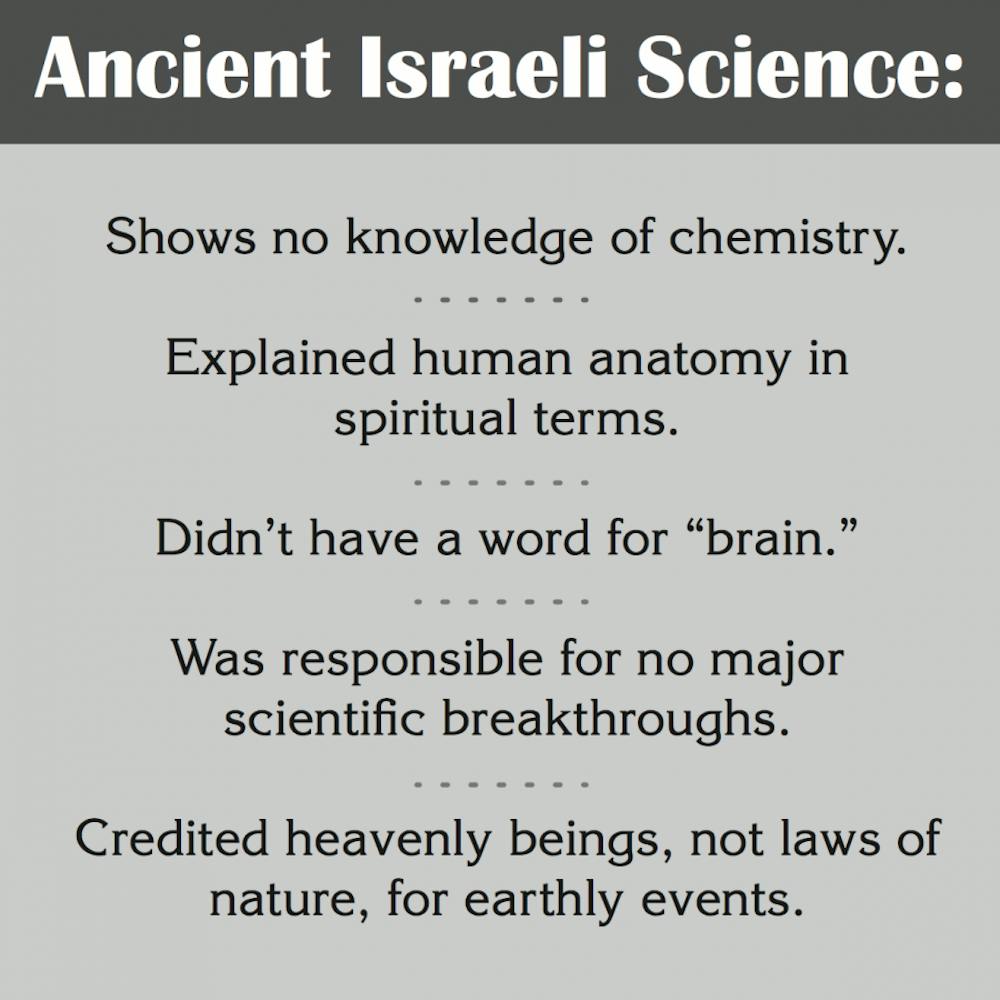
By Anna Oelerich | Contributor
What if Adam wasn't really formed from dust? What if Eve wasn't actually made from Adam's rib? What if the two weren't even the first people that God created?
John Walton raised these and other questions about the first couple in Genesis in his seminar entitled "BioLogos-The Harmony Between Science and Biblical Faith: The Lost World of Adam and Eve, Genesis 2 & 3" last Saturday afternoon.
Walton, an Old Testament professor at Wheaton College, made it clear from the beginning that he is no scientist.
"I'm not here to persuade you into a certain way of thinking . . . but I am here to offer you certain information," Walton said.
According to Walton, Western culture and thought differ from the Ancient Near East context in which the Bible was written. Thus, today's Christians already read Scripture differently than it was intended to be read.
Language and cultural barriers may raise questions for modern readers or cause them to miss details that would have been understood by the original audience.
"(The Bible) is for us, but not to us," Walton said. "In that sense, we're sort of reading someone else's mail."
But how debatable are the details of Adam and Eve's story?
Adam's name is a good place to start. Adam means "human," and because it is capitalized in most versions of the Bible, it is assumed that Adam was the personal name of the man in Genesis 2.
But Walton was quick to challenge this. After all, Hebrew as a language did not yet exist in the garden. "I will contend that Eve did not call Adam 'Adam' . . . these are not their historical names," Walton said. He made the same case with Eve's name, which means "life."
Walton suggested that Adam and Eve were archetypal characters in Genesis, and that "human" and "life" were descriptions that conveyed something larger than the two of them.
The same, he said, is true of Adam's formation from the dust of the earth. The psalmist says: "For he knows how we are formed; he remembers that we are but dust" (Psalm 103:14).
Walton maintained that because the verse contains the pronoun "we," it refers to all of mankind, not just Adam. He concluded that the idea of being formed from dust had more to do with our human identity and less about our biological beginning. If that's indeed the case, Walton said, Adam could have been figuratively formed from dust, but literally formed from a woman.
In other words, Adam may not have been the first human male on earth.
Walton's next theory dealt with the creation of Eve. According to Walton, the Hebrew word for rib isn't found anywhere else in the Bible, making it hard to translate. What's more, Adam calls Eve "bone of my bones and flesh" upon seeing her. For both bone and flesh to be involved, God must have taken one of Adam's sides, or halves, to make a helper - literally giving Adam his "better half".
Unlike the animals before them, Adam and Eve's union was to be so much more than mating. "Marriage stitches back our identity," said Walton. That is, coming together as one flesh allowed Adam and Eve, in their distinct identities, to be united as a new whole.
Whether the Genesis story is figurative or literal, it still is the story of our origin. Regardless of the questions he raised about the Genesis narrative, Walton affirmed the authority and wisdom of God in creating Adam and Eve -- and of all mankind.
"No matter what He made us from," Walton said, "He made us."





